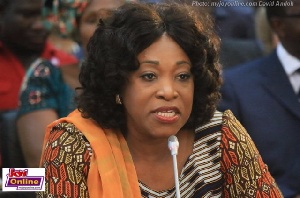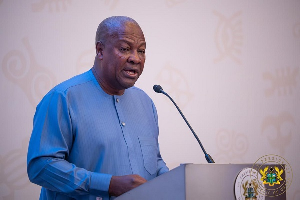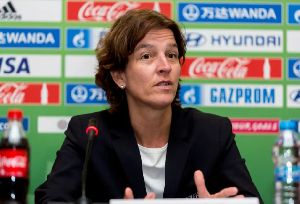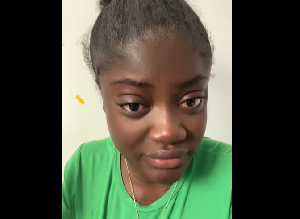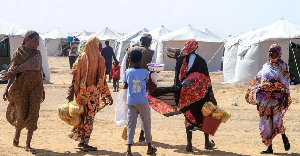Ghana and Japan on Friday signed two grant agreements totalling $58.4 million, geared towards the improvement of international corridor roads and sector budget support to promote health service delivery.
The signing of the agreements was initialled for Ghana by Madam Shirley Ayorkor Botchwey, Minister for Foreign Affairs and Regional Integration, while that of Japan was by Mr Kaoru Yoshimura, the Ambassador Extraordinary and Plenipotentiary of Japan and Mr Koji Makino, the Chief Representative,
Japan International Cooperation Agency (JICA).
The grant agreement signing was done in Accra at a reception to mark the 60 years anniversary of diplomatic relations between the two nations.
The first is $56.6 million (¥ 4.375 billion) grant agreement for the project for the Improvement of International Corridor Roads in Ghana.
This comprises of the implementation of the project for improvement of the Tema Motorway Roundabout and the detailed design for the rehabilitation of National Trunk Road N8 Phase II.
The concept of the rehabilitation of the National Trunk Road N8 Phase II involves Rehabilitation of the 31.2km Assin Fosu – Asssin Praso road section with asphalt concrete pavement and the dualisation of the 1.2km section in the centre of urbanised area of Assin Fosu township.
Others are the replacement of an existing railway overpass bridge with a box culvert, reconstruction/rehabilitation of drainage facilities between Assin Fosu and Assin Praso and installation of a toll collection facility at the south of Assin Praso township.
The second grant is a $1.8 (¥ 200 million) sector budget support to promote health service delivery in Ghana.
The overall aim of this grant is towards poverty alleviation through improved health status of the Ghanaian population and the attainment of Universal Coverage of Health Services in Ghana.
The grant, which is to support government budget allocation to the primary health care level, would be given to the Ministry of Health for onward allocation to the Ghana Health Service, which is the implementing body of the grant.
The grant amount would be disbursed with 2017 to support community health activities in Northern, Upper East and West Regions.
It would specifically support home visit activities of Community Health Officers (CHOs) and system strengthening.
Madam Botchwey said the event was an important milestone for the two countries to recognise the significance of bilateral partnership that they have had in the process of their socioeconomic development through the Japanese Official Development Assistance (ODA).
“Japan has remained a reliable friend of Ghana, since the arrival of the great scientist, Dr Noguchi of blessed memory in the then Gold Coast in 1927, to conduct research into yellow fever for the survival of mankind.
“The relationship between the two countries was further consolidated, when Ghana attained Independence in 1957, with the two countries establishing diplomatic relationship that year,” she said.
“The strengthening of relationship between our two countries over the years had been characterised by our common desire to forge friendship and corporation based on mutual respect and support for each other’s development aspiration, as well as solidarity in the pursuit of peace, stability and security,” she added.
She said remarkably, the traditional bonds of friendship and corporation forged at the political level had greatly manifested in the steady economic growth of the two countries.
Madam Botchwey said over the past decades, Ghana and Japan had enjoyed fruitful economic and technical corporation as evidenced by the latter’s assistance to the former in practically every aspect of the economy; such as finance, agriculture, food aid, governance, infrastructure development, culture, education and trade.
On the international scene, the Foreign Minister said, Ghana and Japan share common positions on global issues such as the reform and composition of the United Nations governance structure.
She said the two countries had over the years supported each other’s candidature at the international level.
“The Government and people of Ghana sincerely appreciate the considerable financial and material support extended by Japan to Ghana over the years in our quest for economic development,” she said.
Mr Yoshimura said the signing of the two grant agreements, was a proof of the strength of the relationship between Ghana and Japan.
“Japan has been a consistent development partner to Ghana since Japan’s Official Development Assistance (ODA) to Ghana started in 1963,” he said.
“I am, therefore, very much excited about how far our two countries have come,” he said.
In a flashback, Mr Yoshimura recounted Ghana Japan relationship from 1957 during the era of Dr Kwame Nkrumah, then Ghana’s Prime Minister and Mr Nobusuke Kishi, then Japan Prime Minister.
He said this year would mark the 90th anniversary of the arrival of Dr Hideyo Noguchi to conduct medical research towards the cure for yellow fever in Ghana.
Dr Noguchi, unfortunately, met his untimely death through the yellow fever research; and in his memory, the Noguchi Memorial Institute for Medical Research was set up at the University of Ghana.
Mr Kwaku Agyemang-Manu, Ghana’s Health Minister, lauded the Japanese Government for the support.
He said the funds would be used for their intended purposes to accelerate Ghana’s socioeconomic development.
Among the key people, who witnessed the grant signing agreements include Mr Sylvester Parker-Allotey, Ghana’s Ambassador to Japan, Professor Ebenezer Oduro Owusu, the Vice-Chancellor, University of Ghana and Mr Kaz Tamura, the Chairman of Japanese Community in Ghana.
Business News of Monday, 3 April 2017
Source: GNA

